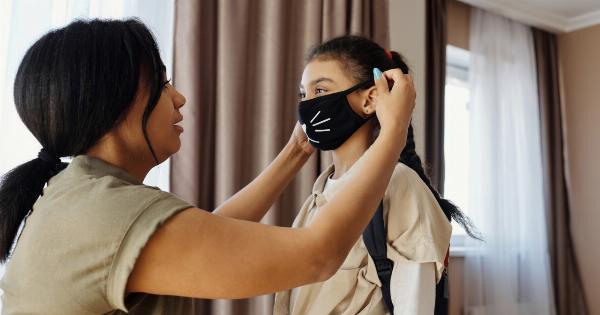The Centers for Disease Control and Prevention (CDC) has recently issued a warning about the rapid spread of measles, a highly contagious and potentially deadly disease.
With numerous outbreaks occurring around the country, countless children are being put at risk, highlighting the urgent need for vaccination and public awareness.
The Measles Outbreaks: A Growing Concern
In recent years, the number of measles cases has skyrocketed, reaching alarming levels. According to the CDC, there have been over 1,000 reported cases of measles in the United States since the beginning of the year, and the numbers continue to rise.
This surge is of significant concern, as measles had been declared eliminated in the country in 2000.
Measles is an airborne disease that spreads through respiratory droplets when an infected person coughs or sneezes.
It is highly contagious, with an estimated 90% of unvaccinated individuals who come into contact with an infected person contracting the virus. The virus can survive in the air for up to two hours, making crowded places like schools, daycare centers, and public transportation hubs hotspots for transmission.
One of the primary reasons for the recent increase in outbreaks can be attributed to the low vaccination rates in certain communities.
Vaccine hesitancy, fueled by misinformation and unfounded fears, has led to a decline in the number of children receiving the measles, mumps, and rubella (MMR) vaccine. This, in turn, has created a vulnerable population susceptible to contracting and spreading measles.
Measles: More Than Just a Rash
While some people may think of measles as a harmless childhood illness characterized by a rash, the reality is far more severe. Measles can have serious complications, especially in young children and individuals with weakened immune systems.
These complications can include pneumonia, encephalitis (inflammation of the brain), and even death.
Common symptoms of measles include high fever, cough, runny nose, red and watery eyes, and a characteristic rash that starts on the face and spreads downwards.
Infected individuals are contagious from four days before the rash appears until four days after.
Considering the potential risks associated with measles, it is crucial to take immediate action to protect children and prevent further outbreaks.
The Importance of Vaccination: A Powerful Tool
Vaccination is the most effective way to prevent measles and reduce the risk of outbreaks.
The MMR vaccine, which provides protection against measles, mumps, and rubella, is safe and highly effective when administered according to the recommended schedule.
It is crucial for parents and caregivers to ensure that children receive the recommended doses of the MMR vaccine. The routine schedule includes two doses – the first at around 12-15 months of age and the second at 4-6 years of age.
The vaccine provides long-lasting immunity, with over 97% effectiveness after two doses.
Public health agencies, healthcare providers, and community leaders must work together to increase vaccination rates and combat vaccine hesitancy.
Education programs, outreach initiatives, and clear communication about the safety and importance of vaccines can help dispel myths and misconceptions.
The Role of Herd Immunity
Herd immunity, also known as community immunity, plays a critical role in protecting vulnerable populations who cannot receive the vaccine due to medical reasons.
When a significant portion of the population is vaccinated, it provides indirect protection by reducing the spread of the virus.
For measles, a high vaccination rate of about 93-95% is necessary to achieve herd immunity. When vaccination rates fall below this threshold, it creates pockets of susceptible individuals, allowing the virus to spread rapidly.
By ensuring high vaccination rates, we can protect vulnerable children, including infants who are too young to receive the vaccine, and individuals with compromised immune systems.
Combating Misinformation: Separating Fact from Fiction
One of the significant challenges in addressing the current measles outbreak is the abundance of misinformation surrounding vaccines.
False claims linking vaccines to autism and other harmful effects have been thoroughly debunked by scientific research.
The MMR vaccine has undergone extensive testing and has been proven safe and effective. It does not cause autism or any other serious health conditions.
Delaying or refusing vaccinations based on unverified information puts individuals at risk and contributes to the spread of preventable diseases like measles.
It is crucial to rely on reputable sources of information, such as the CDC, the World Health Organization (WHO), and healthcare professionals when making decisions about vaccines.
These organizations provide evidence-based recommendations and guidelines to ensure the safety and well-being of individuals.
Public Awareness and Vigilance: A Collective Responsibility
Preventing the further spread of measles requires a collective effort from everyone in the community. Parents and caregivers must prioritize childhood vaccinations and stay informed about recommended immunization schedules.
Healthcare providers should actively educate their patients about the importance of vaccines and address any concerns or questions they may have.
Schools, daycare centers, and public institutions should have policies in place to ensure that all children are up-to-date with their vaccinations, protecting not only individual students but the wider community as well.
By working together and spreading accurate information, we can halt the resurgence of measles and protect countless children from this highly contagious disease.





























